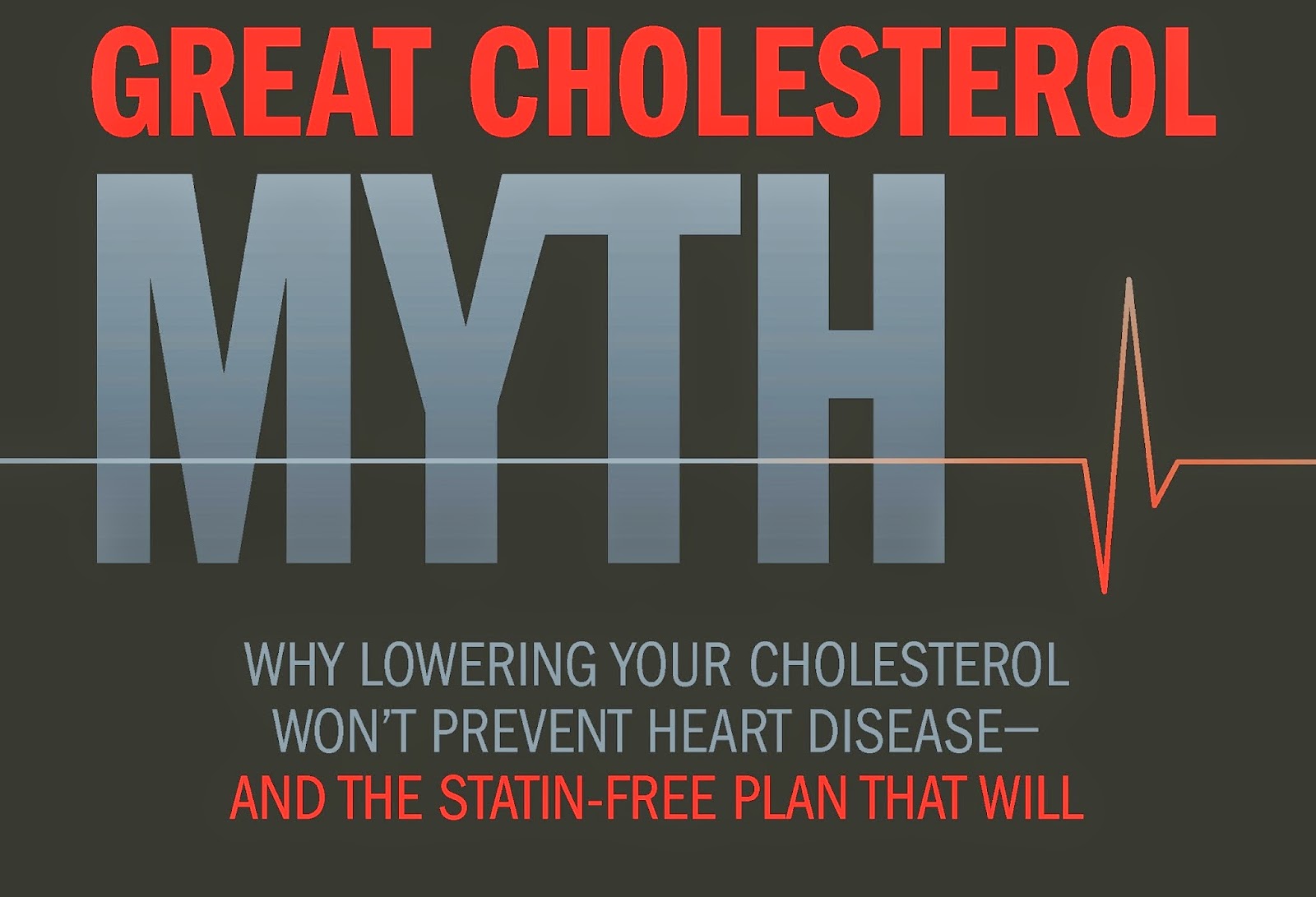
Our. bodies.
need. healthy. levels. of. cholesterol. to. function.. Cholesterol. is. a. fatty.
substance. made. by. the. liver. and. distributed. throughout. the. body.. It. allows.
our. bodies. to. make. vitamin. D. and. hormones,. and. makes. up. bile. acids..
We. also. get. less. than. 25. percent. of. our. body’s. cholesterol. from. the.
foods. we. eat,. especially. animal. fats.
High. cholesterol.
means. you. have. a. lot. more. cholesterol. in. your. blood. than. you. need..
Most. people. who. have. high. cholesterol. don’t. have. any. obvious. symptoms..
A. simple. blood. test. can. tell. you. if. you. have. high. cholesterol.. If. you.
do. have. high. cholesterol,. dietary. changes,. exercise,. and. targeted. medications.
can. help. lower. it. and. reduce. your. risk. of. developing. heart. disease.
High. cholesterol,.
also. known. as. hypercholesterolemia,. is. a. major. risk. factor. for. heart.
disease. and. stroke.. Abnormal. levels. of. LDL. cholesterol. or. HDL. cholesterol.
are. treated. with. a. low-fat. diet,. exercise,. and. medications. such. as. statins.
If. you. have.
high. blood. pressure,. high. cholesterol,. or. a. history. of. heart. problems,.
you. have. a. higher. risk. of. heart. attack. and. stroke.. You. can. lower. your.
risk. by. making. this. small. change:. At. each. meal,. choose. foods. that. are.
good. for. your. heart.
Cholesterol.
moves. through. your. bloodstream. via. lipoproteins.. There. are. two. kinds. of.
lipoproteins,. and. we. need. them. both.. Low-density. lipoproteins. (LDL). transport.
cholesterol. around. to. where. it’s. needed.. If. there’s. too. much. cholesterol,.
it. may. be. deposited. into. the. arteries.. LDL. is. commonly. referred. to. as.
“bad. cholesterol.”. High-density. lipoproteins. (HDL). take. the. extra. cholesterol.
from. your. tissues. and. cells. and. return. it. to. your. liver. for. repurposing..
That’s. why. HDL. is. called. “good. cholesterol.”

The. job. of.
the. arteries. is. to. move. blood. from. your. heart. to. other. parts. of. your.
body.. Too. much. LDL. and. not. enough. HDL. makes. it. more. likely. that. your.
arteries. will. develop. plaque,. a. hardened. mixture. of. cholesterol,. fat,.
and. other. elements.
As. coronary.
arteries. narrow,. it’s. harder. for. blood. to. make. it. through. to. your. heart..
If. an. area. of. plaque. breaks. open,. it. can. result. in. a. blood. clot,. which.
can. block. blood. flow. altogether.. This. puts. you. at. great. risk. of. having.
a. heart. attack.. Symptoms. of. reduced. blood. supply. to. the. heart. include.
chest. discomfort,. pressure,. and. pain. (angina).. You. may. also. have. pain.
in. your. jaw,. neck,. shoulders,. arms,. or. back.. Angina. can. be. mistaken.
for. indigestion.
If. blood. flow.
to. one. section. of. heart. muscle. is. blocked,. the. result. is. a. heart. attack..
That. means. the. heart. muscle. is. dying.. Blood. flow. has. to. be. restored.
fast,. or. there’s. a. risk. of. permanent. heart. damage. or. death.
When. plaque.
builds. up. in. the. arteries. that. carry. blood. to. your. brain,. your. brain.
is. deprived. of. oxygen.. Brain. cells. quickly. become. damaged. and. start. to.
die. (stroke).. Symptoms. include. sudden. weakness. and. numbness.. Depending.
on. the. area. of. the. brain. involved,. you. may. have. trouble. speaking,. seeing,.
or. moving. your. limbs.. A. stroke. can. cause. brain. damage,. disability,. or.
death.
Plaque. can.
also. build. up. and. interfere. with. blood. flow. to. your. arms. and. legs. (peripheral.
arterial. disease).. If. the. blood. supply. to. your. limbs. is. blocked,. you.
may. feel. numbness. or. pain.. There’s. an. increased. risk. of. infection. in.
those. limbs.. Lack. of. blood. can. cause. tissue. death. (gangrene).
Most. diets.
are. based. on. foods. you. shouldn’t. eat.. Instead,. take. a. positive. approach.
and. focus. on. foods. that. are. good. for. you.. .

Eat. more. vegetables,.
fruits,. and. whole. grains.. The. fiber. in. these. foods. helps. lower. “bad”.
LDL. cholesterol.. Put. these. on. your. plate. with. every. meal. to. reach. these.
daily. amounts:. At. least. 5. cups. of. fruits. and. vegetables. and. three. 1-ounce.
servings. of. whole. grains. a. day.
Eat. more. beans,.
legumes. (like. lentils),. seeds,. and. nuts.. Your. weekly. target:. 4. servings.
of. either. nuts,. seeds,. or. legumes. such. as. black. beans,. garbanzos. (also.
called. chickpeas),. or. lentils.
Put. healthier.
fats. to. work. for. you.. . Favor. unsaturated. fats,. such. as. canola,. olive,.
and. peanut. oils.. These. oils. are. less. likely. than. butter. or. lard. to.
clog. your. arteries.
Eat. fish. that.
are. high. in. omega-3. fatty. acids,. including. albacore. tuna,. salmon,. and.
sardines.. Omega-3s. seem. to. lower. triglycerides,. fight. plaque. in. your. arteries,.
lower. blood. pressure,. and. reduce. your. risk. of. abnormal. heart. rhythms.
Eat. lean. protein..
Make. beans,. nuts,. fish,. and. chicken. your. mainstays,. and. keep. portions.
in. check.. The. American. Heart. Association. suggests. you. eat. at. least. two.
3.5-ounce. servings. of. fish. a. week.. Some. cuts. of. meat. have. more. fat.
than. others,. so. look. for. leaner. choices.. If. you’re. craving. some. type.
of. processed. meat. --. bacon,. deli. meats,. hot. dogs,. sausage,. chicken. nuggets,.
or. jerky. --. limit. those,. too.

Feed. your.
body. regularly.. When. you. skip. a. meal,. you’re. more. likely. to. overeat.
later.. For. some. people,. eating. 5. to. 6. mini-meals. works. best. to. limit.
calories,. help. control. blood. sugars,. and. regulate. metabolism.. For. others,.
3. meals. a. day. works. better,. since. extra. meals. can. trigger. overeating..
See. which. approach. works. for. you.
Experiment.
with. new. flavors.. Try. using. dried. herbs. and. spices. instead. of. salt,.
which. can. drive. up. your. blood. pressure.. For. chicken,. try. using. rosemary,.
garlic,. or. sage.. For. fish,. try. dill. or. tarragon.. Vinegars. are. another.
way. to. liven. up. ho-hum. food.
Celebrate. each.
pound. you. lose.. Small. steps. add. up.. Dropping. even. 5. or. 10. pounds. --.
even. if. you're. still. technically. overweight. afterward. --. will. cut. your.
risk. of. having. a. heart. attack. or. stroke. by. lowering. your. blood. pressure,.
cholesterol,. and. blood. sugar. levels.
As. important.
as. your. diet. is,. you'll. also. do. your. heart. a. favor. by. doing. these.
things:

Exercise.. Be.
as. active. as. possible.. It. strengthens. your. heart,. improves. blood. flow,.
raises. "good". HDL. cholesterol,. and. helps. control. blood. sugar.
and. body. weight.
If. you. smoke,.
quit.. No. matter. how. many. years. you've. been. smoking,. know. this:. Research.
shows. that. quitting. works. as. well. --. if. not. better. --. than. just. about.
any. heart. drug. available.. Quitting. now. will. lower. your. risk. of. death.
from. heart. disease. by. 33%.
High. cholesterol.
can. create. a. bile. imbalance,. leading. to. gallstones.. According. to. the.
National. Digestive. Disease. Information. Clearinghouse,. more. than. 80. percent.
of. gallstones. are. cholesterol. stones.

A. buildup.
of. plaque. in. your. arteries. can. also. block. blood. flow. to. your. kidneys.
and. stomach.. Intestinal. ischemic. syndrome. is. when. there’s. a. blockage. in.
arteries. leading. to. the. intestines. or. bowel.. Symptoms. include. abdominal.
pain,. nausea,. vomiting,. and. bloody. stools.





No comments:
Post a Comment